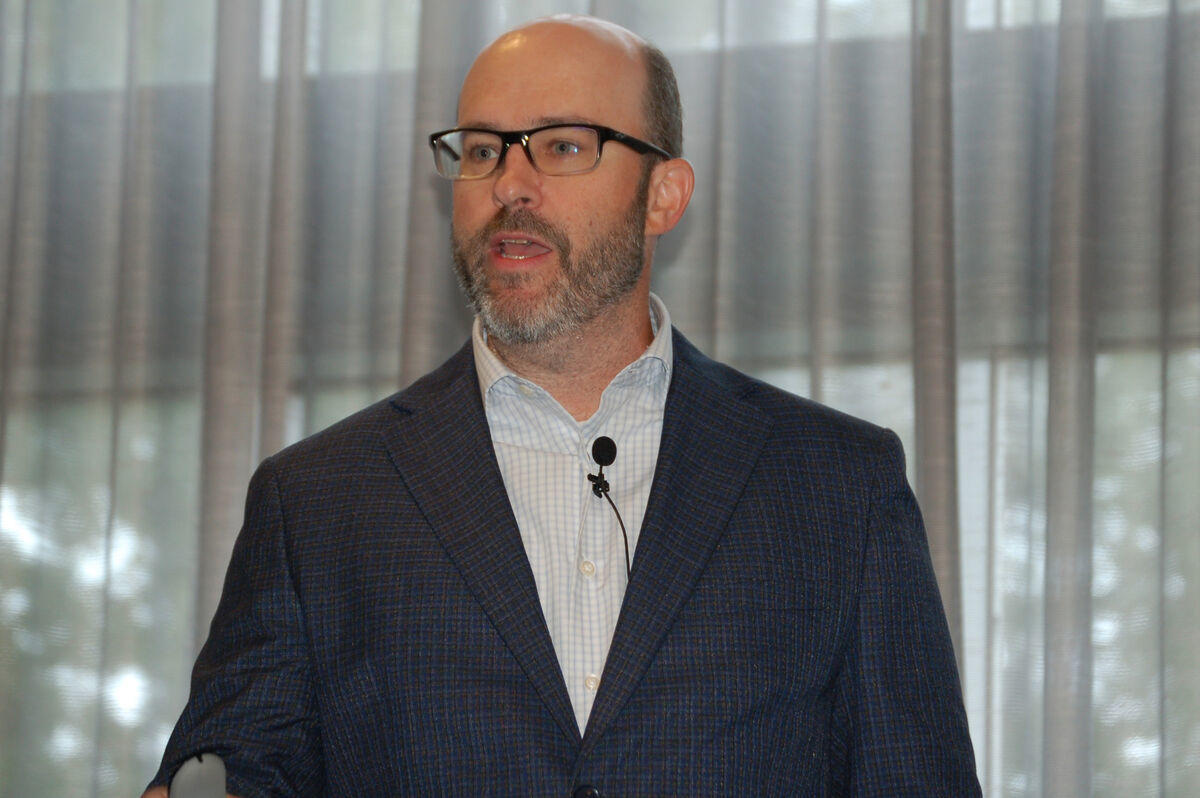News

Florida secures nearly $1B in credits for Progressive auto insurance policyholders, DeSantis says
Policyholders will get an average rebate of $300
Florida Gov. Ron DeSantis announced on Wednesday that the state has secured nearly $1 billion in credits for Progressive auto insurance policyholders.
DeSantis made the announcement during a news conference in Sarasota and said the credits are a result of litigation reforms that have been implemented recently, giving consumers the ability to get refunds on their policies.
“So 78% of our auto market are the top five companies, and they are seeing reductions, and part of the reason they’re able to do that is because you have seen a decline in litigation expenses almost really immediately from when the 22-23 reforms were put in,” DeSantis said.
RELATED | Gov. DeSantis says GEICO, Progressive among auto insurance companies to decrease rates in Florida
MORE-with-insurance-regulation-commissioner-in-sarasota/

California’s ‘last resort’ property insurer seeks rate hike, ringing national alarm bells • Stateline
In recent years, hundreds of thousands of Californians have purchased home insurance from a state-managed “last resort” insurance pool that has grown rapidly as private insurance companies have fled the market.
Now, in the wake of the devastating Los Angeles wildfires earlier this year, the Fair Access to Insurance Requirements (FAIR) Plan is seeking approval from the state for an average 36% rate hike, which would further squeeze homeowners who have no other options for coverage.
Insurance experts say it’s a national warning sign, as the effects of climate change cause private insurance companies to pull back on coverage in disaster-prone areas, leaving states and their residents to assume more of the risk. Fewer homeowners will be able to purchase private insurance in the future, and even those who do may face higher premiums as companies charge more to pay for the FAIR Plan losses.
In some states, these state-managed insurance plans have grown from a handful of policies, as originally intended, to hundreds of thousands of homeowners. The plans charge high premiums and provide limited coverage.
AI in Insurance
The future of AI in insurance: ‘It’s not enough to tinker’
The latest AI advances are transforming the insurance industry, enabling unprecedented levels of automation and unlocking opportunities to improve workflows such as sales, underwriting, and claims management. Insurers that have a bold vision for AI and integrate it deeply into how they operate stand to gain significant competitive advantage—but they must get their tech transformations right.
McKinsey’s Tanguy Catlin, Violet Chung, and coauthors write: “It’s not enough to tinker around the edges and run a few pilots, or to expect true AI enablement to come from buying a patchwork of software-as-a-service products from suppliers with minimal strategic intent, or to hope that workflows will be transformed by off-the-shelf AI solutions.” Check out their report for six signature moves to help insurance organizations outperform in the digital age, and read on for how AI is making waves in the UK’s insurtech industry, the value of combining gen AI with other technologies in insurance, and more.

When the algorithm knocks: How AI is quietly rewriting insurance jobs | Insurance Business America
Will a robot replace you?
In the insurance industry, disruption rarely arrives with noise. It comes in spreadsheets, new software modules, and quiet updates to underwriting platforms.
But over the past year, something more profound has begun: artificial intelligence is slipping into nearly every corner of insurance operations, reshaping what many white-collar workers actually do.
From the cubicles of claims departments to the digital desks of underwriters, AI is beginning to automate tasks once considered immune to technology. The people who feel it most aren’t the factory workers or drivers of the past industrial revolutions — they’re analysts, administrators, and specialists in tailored suits.
A white-collar turning point
A comprehensive study published in Harvard Business Review by Evercore ISI and venture studio Visionary Future looked at 160 million American jobs to understand how generative AI will alter the workforce. Their finding was both sobering and nuanced: nearly every role is exposed to AI in some way, but it’s the high-skill, desk-based professions — the very jobs that defined 20th-century prosperity — that face the sharpest transformation.
“AI will emerge not merely as a technological marvel, but as a beacon of hope in addressing demographic and productivity challenges,” the authors wrote. Yet for millions of workers, that beacon might shine uncomfortably close.
Research

Claims Count Still Down, But Predicted Rise in Used Car Values Could Reduce Total Losses - Autobody News
The average total cost for repairable claims rose 1.4% in the first half of the year — the smallest rate of growth in about 15 years.
The latest quarterly Crash Course Report from CCC Intelligent Solutions showed total auto claims counts being down 8.5% year over year through July — and things didn’t improve for collision repairers much in August, according to a CCC presentation at the recent annual CIECA CONNEX conference in Nashville.
Repairable claims counts were down even further, 10.4% through August, compared to the same period last year, said Kyle Krumlauf, director of industry analytics for CCC. He said there are differences among the decline based on coverage type, with comprehensive claims — primarily hail, flooding and storm-related claims — down 15.3%.
“This year we have seen significantly less volume from weather-related claims,” Krumlauf said. “June, July, August, especially for states like Colorado, Nebraska and Texas, we’ve seen significant decline in weather-related or comp claims.”
The total cost of repair for repairable claims has risen to $4,774 in the first half of 2025 — up from $4,708 in the same period last year — but the 1.4% rate of increase year over year pales in comparison to the rate of growth the prior five years, when repair costs were rising between 5.1% in 2024 and 15.7% in 2022.
“We haven’t seen these small of increases in repair costs in 15 years or something like that,” Krumlauf said. “There are a number of aggravating and mitigating factors that are playing into it. First of all, the number of parts per repair is down by about a half part per repair through the first half of this year.”
Climate/Resilience/Sustainability

Catastrophe losses remain key challenge for P&C – Conning
As insurers adapt to volatile conditions, investment income offers a crucial buffer
Catastrophes have become a consistent and significant factor in the property and casualty (P&C) insurance sector, according to a new P&C Forecast & Analysis report from Conning.
The report highlights that the frequency and severity of natural catastrophes, particularly secondary perils such as severe convective storms and wildfires, are continuing to reshape the industry landscape.
First-half catastrophe losses reached record levels, driven in part by the January Los Angeles fires. Despite these losses, the sector reported a better combined ratio compared to the same period last year.
The report projects that 2025 will mark the eighth year out of the past nine with above-normal catastrophe losses. Estimated losses for the first half of the year stand at $64 billion.

Hurricane Melissa Live Blog: Storm Reaches Category 5 Intensity | Weather.com
Follow along all day for the very latest on this extremely serious situation for the Caribbean.
Hurricane Melissa is now a Category 5 storm, capable of dumping catastrophic rainfall in addition to the powerful winds it's packing. The monster storm has begun to impact Jamaica, Cuba and Haiti, and it's expected to cause life-threatening problems for days during its slow crawl through the Caribbean.
InsurTech/M&A/Finance💰/Collaboration
Insurtech settling claims at triple the industry speed closes $13.3M Seed funding
ClaimSorted announces one of the largest Seed rounds in Insurtech to date
ClaimSorted, the next-generation claims Third Party Administrator, today announced a $13.3million seed funding round, one of the largest Insurtech seed rounds on record.
ClaimSorted is a digital claims TPA that offers a five-star experience to policyholders while helping insurance companies cut operational and indemnity costs. Since the firm was founded by Pavel Gertsberg and German Mikulski last year, ClaimSorted has partnered with more than 20 insurers across the US, UK, and EU, serving tens of thousands of policyholders.
The round was led by Atomico, with participation from Eurazeo, Y Combinator, firstminute capital, Start Ventures Capital, and a network of prominent insurance veterans. The new funding will accelerate product development, expand operations across key global markets, and scale partnerships with insurers seeking a modern alternative to legacy TPAs.

Applied Acquires Cytora: Supercharging the Digital Roundtrip of Insurance with AI
Remember in “The Avengers” movie when all the superheroes finally come together, and you just know something EPIC (see what I did there) is about to happen?
That’s exactly how I felt when we finalized our acquisition of Cytora – two powerhouses joining forces, each bringing unique strengths to create something greater than the sum of its parts.
This is a significant milestone for us as it deepens our commitment to simplifying and enhancing the insurance journey for carriers, agencies, MGAs, and brokers alike. Below, I want to unpack the “why” of this acquisition and how Cytora fits into our bold vision to infuse AI into every step of the Digital Roundtrip of Insurance and how Applied is best positioned to be the go-to solution for AI in insurance.
Commentary/Opinion
ITC Briefing: Cognizant’s Craig Weber on AI, Partnerships, and Innovation Velocity | Insurance Innovation Reporter
Weber explains how Cognizant helps insurers accelerate innovation through scalable partnerships, AI experimentation, and rapid solution development.
Cognizant (Teaneck, N.J.) attended ITC 2025 with a threefold purpose: to connect with partners across the ecosystem, evaluate emerging InsurTech innovators, and meet with clients exploring next-generation insurance solutions.
“Cognizant really comes to this show for three reasons,” comments Craig Weber, Head of Insurance Strategy, Cognizant. “One is to connect with our current ecosystem partners—large and small—and catch up face-to-face. The second is to scan the market for this year’s crop of InsurTechs, especially AI-driven point solutions. And the third is to meet with clients, many of whom are working in innovation and venture roles.”
As Head of Insurance Strategy at Cognizant, Craig Weber is responsible for the development, management, and communication of the company’s insurance practice strategy. He has extensive experience helping financial institutions address critical business problems related to their digital transformation and core modernization. He is also host of the Insurance Savvy Cognizant podcast.

Sink or Swim: Insurers must adapt in this era of change, Deloitte finds
Insurance companies are being challenged by climate change, artificial intelligence and many other pressures, Deloitte finds.
The insurance industry continues to rocket through perhaps the most dynamic era of change in its history, with technology, climate change, consolidation, and legal/regulatory demands creating relentless pressure.
Insurers that are responding will survive, and even thrive, Deloitte reports. Those that don’t will fall behind.
“The future of insurance is here, and carriers will need to decide how to most effectively transform business models, infrastructure, and talent to remain profitable,” Deloitte concluded in its 2026 Global Insurance Outlook.
Deloitte projects a “bifurcated industry” in which tech-forward carriers thrive while laggards struggle under cost and compliance pressures.
The firm conducts its global insurance outlook annually via conversations with industry executives from around the world. With insurers having to meet so many challenges it isn’t surprising that Deloitte is not projecting as much financial growth as in recent years.
"[W]e think the growth will be moderating," explained Joe DeSantis, U.S. national insurance sector leader for Deloitte. "While there will still be growth in commercial auto and still be growth probably in the property lines as well ... we won't see it to the extent that we saw it in 2025."
Telematics, Driving & Insurance
Daimler Truck Financial Services and GEICO launch Connected Insurance program for trucking customers | GEICO
Daimler Truck Financial Services USA LLC (DTFS) and GEICO, one of the largest and most recognized insurers in the United States, today announced the launch of Connected Insurance, a new data-driven insurance program designed to help Freightliner and Western Star owner-operators and small fleets save on premiums while promoting safer driving. The program is contracted through DTFS's subsidiary, Daimler Truck Insurance Agency LLC.
Connected Insurance enhances GEICO's DriveEasy Pro program by leveraging data to reward safe driving. Freightliner and Western Star customers can voluntarily share their real-time Detroit Connect telematics data and take advantage of the benefits without the need to install additional on-board diagnostics or dashcam hardware in the truck. This enables more accurate underwriting and streamlines the claims experience. Eligible customers can save up to 10 percent on their commercial vehicle insurance premiums.
"Daimler Truck Financial Services will always be focused on delivering comprehensive and innovative financial solutions tailored to the unique needs of our customers," said Kevin Bangston, president and CEO of Daimler Truck Financial Services North America. "This strategic partnership with GEICO introduces a smart, data-driven insurance option that helps our customers reduce one of their largest operational expenses."
"Real-time data from Daimler Truck's telematics platform allows us to better assess risk, reward safe driving, and deliver meaningful savings to our customers," said Chris Sions, GEICO's head of partnerships. "Expanding our commercial trucking insurance nationwide requires strong partnerships like the one we've built with Daimler Truck Financial Services."
